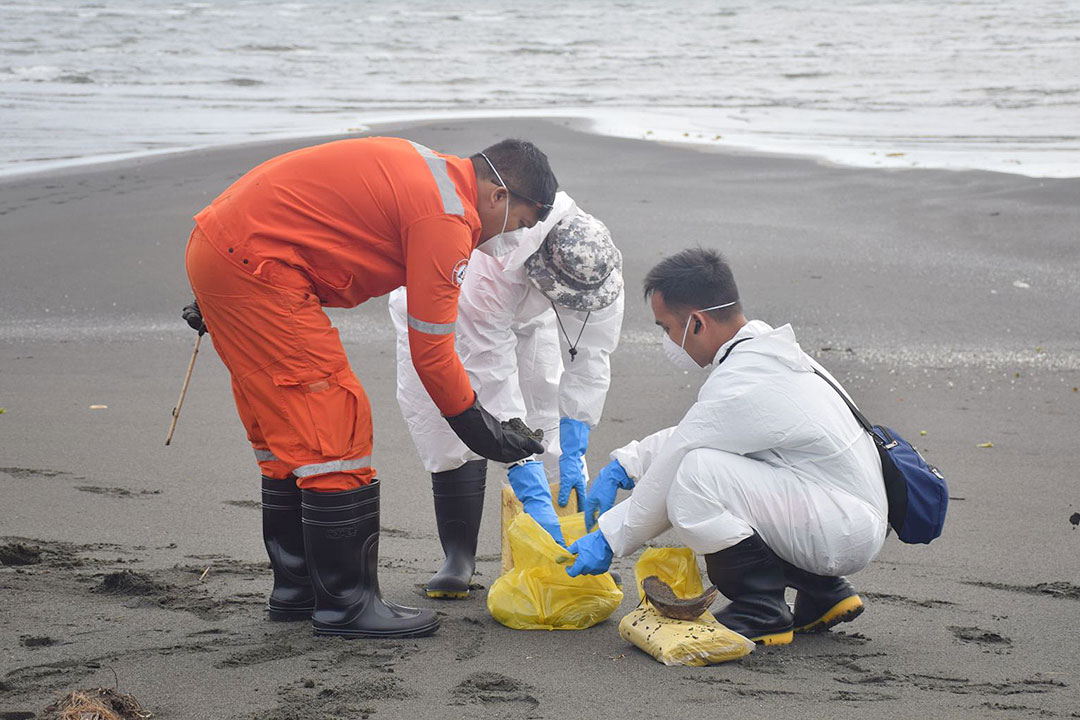Small fishers group calls for faster response in Mindoro oil spill; DoT to give alternative livelihood training to tourism workers

AN ASSOCIATION of small fishers on Tuesday called on authorities to fast-track response measures a month after the oil spill incident in waters off Oriental Mindoro that has so far reached 14 towns and cities in central Philippines.
In a statement, Pambansang Lakas ng Kilusang Mamamalakaya (PAMALAKAYA) national chairperson Fernando L. Hicap said that about 18,000 fisherfolk from the affected areas are still unable to return to their livelihood.
“One month after the oil spill tragedy, accountability remains elusive. In Oriental Mindoro, fisherfolk in several towns are expressing frustration over the slow and arduous process of obtaining compensation from the company that owns the MT Princess Empress, the vessel responsible for the oil spill,” he said.
Tanker MT Princess Empress was carrying 800,000 liters of industrial fuel oil when it sank on Feb. 28 off the waters of Naujan, Oriental Mindoro, which surrounds the Verde Island Passage (VIP), one of the world’s most diverse marine habitats.
Mr. Hicap said that fisherfolk families have experienced “prolonged periods of hunger” due to a complicated process of compensation.
The PAMALAKAYA leader also said the owner of the vessel, RDC Reield Marine Services, must be obliged to undertake long-term rehabilitation of the affected fisheries, mangroves, reefs, and coasts.
The insurers of the vessel, Shipowners P&I Club, said it has already opened a joint claims submission center at the Oriental Mindoro provincial capitol in Calapan City.
Greenpeace Philippines campaigner Jefferson M. Chua, however, criticized the insurers for deterring potential claimants from filing a lawsuit against the vessel owner through a quit claim document.
Valeriano del Rosario, a lawyer representing the insurers, told the claimants in a press conference on Monday that they can get compensation but will likely be asked to sign a quit claim form.
“It is utterly unacceptable that an insurer would discourage claimants from exercising their legal right to seek justice while dangling compensation money over their heads,” he said.
“While the insurer has the responsibility of making sure claimants fully know their rights and the consequences of their choices, it has no business airing their suggestions about what claimants should or not be doing,” he added.
TOURISM
Meanwhile, tourism industry workers affected by the oil spill will be offered alternative livelihood training as government has yet to fully assess the impact of the man-made disaster, Tourism Secretary Christina Garcia-Frasco said.
“At this point, it’s really about ensuring that our tourism frontline workers that if they lose work for a few days or weeks because of the oil spill that we are able to provide them with alternative sources of livelihood,” she said in a statement from the Department of Tourism (DoT), citing an earlier radio interview.
Ms. Frasco said the trainings will “not just specifically focus on their present work but to alternative types of work.”
At least 63 sites, including those under community-based tourism operations, with 1,000 workers have been affected, she said.
The DoT, through its Office of Industry and Manpower Development, will also conduct a learning needs assessment among tourism stakeholders to develop a training module on oil spill response so that the sector will be able to help more should there be similar incidents in the future.
Based on the national disaster response council’s monitoring report as of March 22, the affected areas are: Batangas City; Naujan, Pola, Pinamalayan, Bansud, Bongabong, Roxas, Mansalay, Gloria, Bulalacao, and Calapan in Oriental Mindoro; Agutaya and Taytay in Palawan; and Caluya in Antique.
“As far as the top attractions in that particular area, including Puerto Galera were pleased to inform the public that they are still at over 90 percent capacity as far as reservation is concerned,” Ms. Frasco said. — Sheldeen Joy Talavera



